By Andrew Sarris in the May-June 2010 Issue
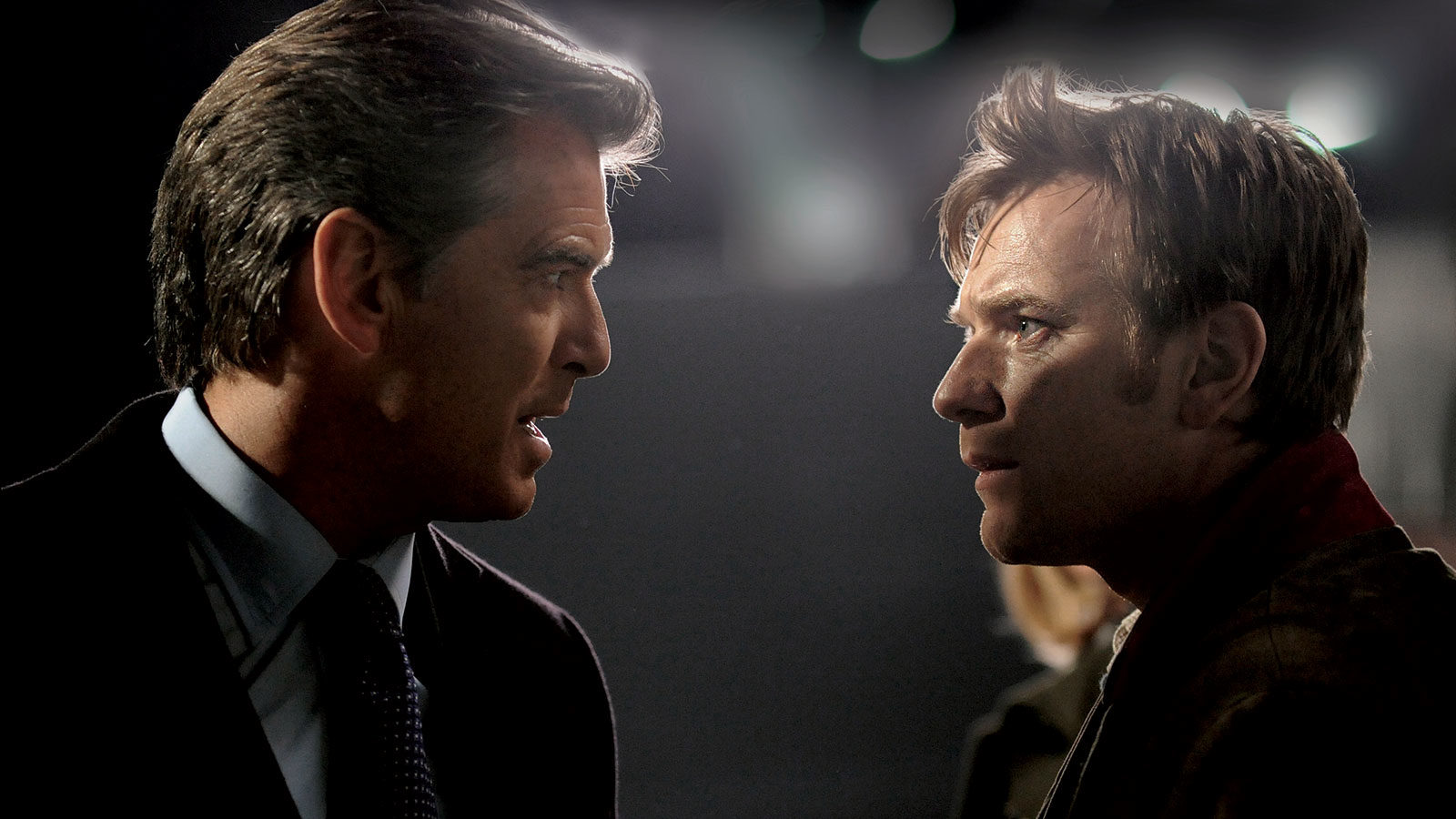
The Perils of Polanski
Art imitates life in The Ghost Writer
After half a century of filmmaking marked by an inordinate number of interruptions, disruptions, and self-imposed exiles, Roman Polanski, now 76, has emerged with a comparatively meager output of 18 features and about half as many shorts. Most of the latter were completed from 1959 to 1962, when his first feature, Knife in the Water, made him an overnight film-festival celebrity and earned him an Oscar nomination for Best Foreign Language Film. Since then, most of his movies, shot both here and abroad, have been in English.
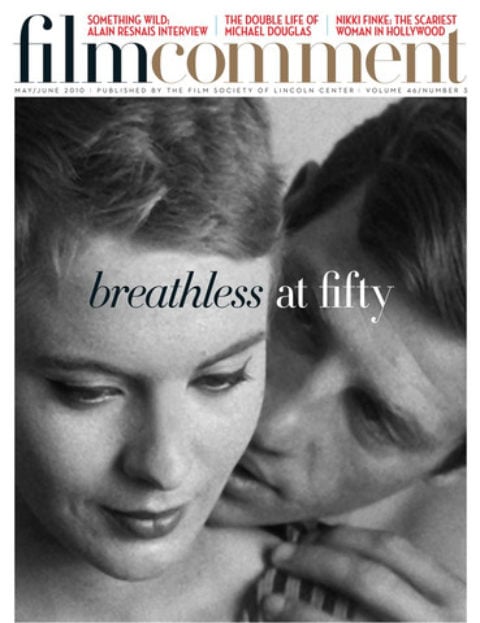
From the May-June 2010 Issue
Also in this issue
Polanski was born August 18, 1933, in Paris to Polish-Jewish parents, who returned to Krakow when he was 3, thus inadvertently precipitating him into a terrifying childhood. When he was 8, his parents were taken to a concentration camp, where his mother died and his father somehow survived. Left alone, the child escaped from the Krakow ghetto just before it was liquidated, and roamed the countryside, living on the generosity of Catholic families who sheltered him from Nazis.
Oddly, Polanski had never made a film directly concerned with the Holocaust until The Pianist (02), which garnered multiple Oscars. And even then it was someone else’s life-and-death story he filmed. Adrien Brody plays the title character, Wladyslaw Szpilman, whose 1946 memoir of his survival in Warsaw from 1939 until the end of World War II was adapted by Ronald Harwood. Yet even though the story was not autobiographical, Polanski infused the film with a sense of his own horrific ordeal, having survived, as does his protagonist, by a cynical awareness of the casual cruelties inflicted by the Nazis.
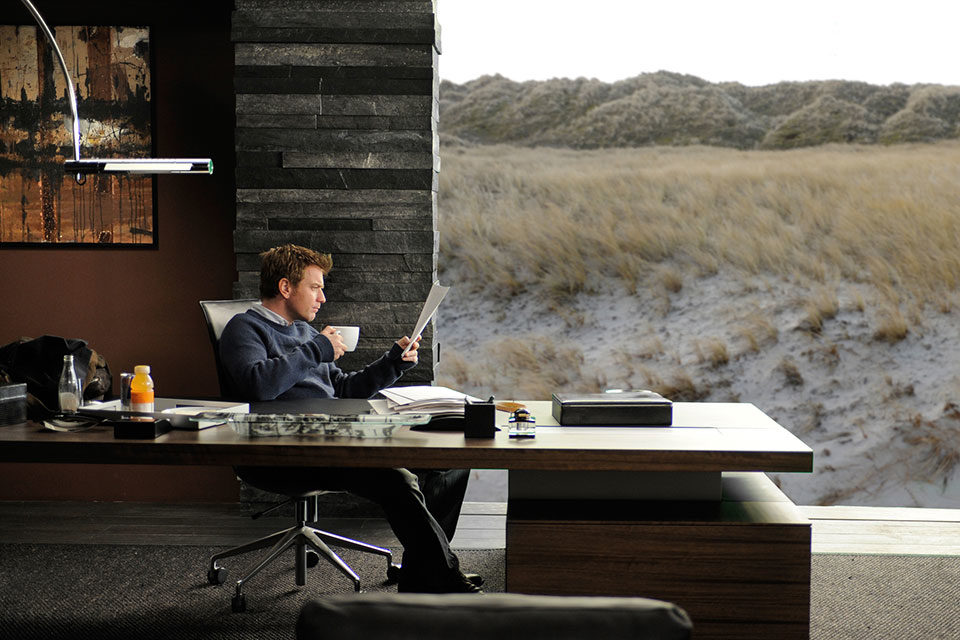
The Ghost Writer
Indeed, Polanski’s entire career could be seen in its predominantly dark ironies as a series of perpetual struggles in a too often insane and indifferent world. Polanski’s first English-language film, Repulsion (65), for example, cast Catherine Deneuve as a lonely, repressed young woman becalmed in her sister’s London flat. Her means of disposing of unwelcome suitors are especially gruesome given Deneuve’s generally sunny temperament in her previous screen appearances. Polanski co-wrote the strangely unsettling screenplay with Gérard Brach, with whom he subsequently collaborated on Cul-de-sac (66). A less successful, but still chaotically engrossing comedy, it concerns a placid, boring couple played by Donald Pleasence and Françoise Dorléac, whose island hideaway is invaded by two fugitive gangsters played by Lionel Stander and Jack MacGowran. This time, however, the feeling of menace in the situation is virtually obliterated by Polanski’s farcical treatment of everyone’s hopeless awareness of a terminal dislocation.
In still another collaboration with Brach, Polanski wrote, directed, and acted in The Fearless Vampire Killers (67), part chilling horror and part uneven send-up of the genre, including an awkwardly self-conscious joke about a Jewish vampire who scoffs at the power of the Christian cross to exorcise vampires of his own religious persuasion. MacGowran and Polanski himself head a cast that includes an ill-fated Sharon Tate, soon to become a casualty of the Manson family’s real-life horror.
Even when Polanski has adapted literary classics by Shakespeare (Macbeth, 71) and Thomas Hardy (Tess, 79), he has managed, for better or worse, to achieve a level of visual and emotional virtuosity that reflects his personal demons. Polanski made the guilt-ridden agonies of Tess his own to such an extent that the film remains a sublime emotional highlight of his career—second only to the epiphany of Chinatown (74), the greatest of all Hollywood political film noirs. The earlier film is graced with a knowledgeable screenplay by Robert Towne, and charismatic performances by Jack Nicholson, Faye Dunaway, and John Huston. Polanski is credited by Towne and others with insisting on a tragic ending by which evil and corruption are triumphant, instead of a more “moral” ending, and this made all the difference. Only Polanski with his own bitter experiences could have banished the curse of the Hollywood happy ending.
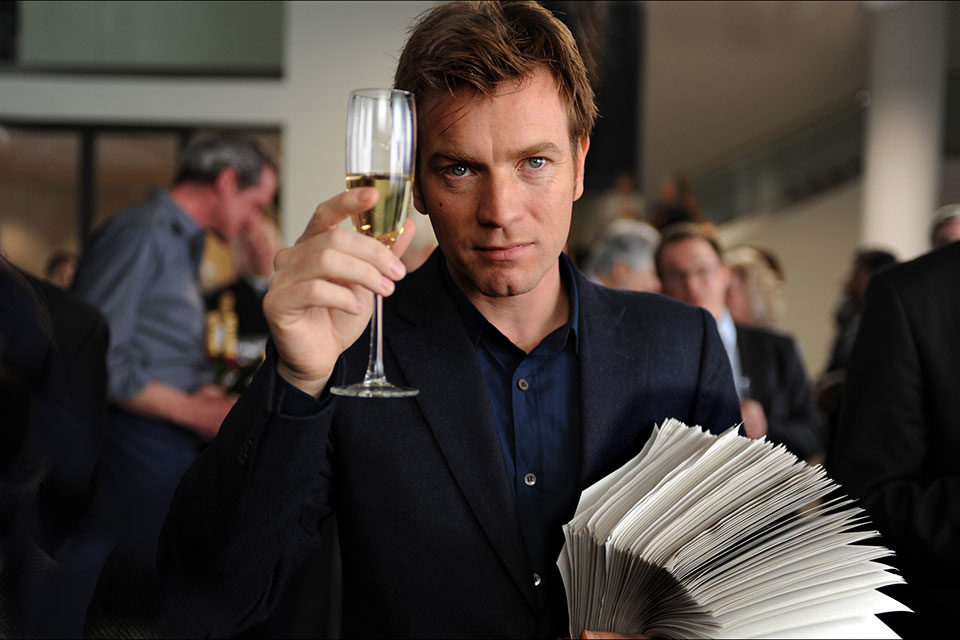
The Ghost Writer
Nonetheless, the most popular success in his aborted Hollywood career was Rosemary’s Baby (68), which he adapted very skillfully from Ira Levin’s best seller. It was hardly a leap for the director to depict the devil’s triumph. After all, he had lived through the rise of Hitler.
The tangled web in which the co-protagonists of Polanski’s The Ghost Writer are enmeshed bears an eerie resemblance to the scandal-ridden predicament in which Polanski now finds himself. Under house arrest in Switzerland, he faces possible extradition to Los Angeles for sentencing in a 1977 sex-crime conviction involving a drugged underage female victim. It is therefore conceivable that The Ghost Writer, completed in Europe just before his ill-advised trip to the Zurich Film Festival, may serve as the writer-director’s cinematic swan song.
Pierce Brosnan plays Adam Lang, a former British Prime Minister patterned after caricatures of Tony Blair as a mere toady of George Bush and his disastrous foreign incursions, who finds himself facing potential prosecution as an alleged war criminal. Polanski’s nameless protagonist and alter ego is played inscrutably and anonymously by Ewan McGregor as the second ghost writer after the mysterious drowning of the first on a ferry ride to Martha’s Vineyard, where Lang lives in self-imposed exile.
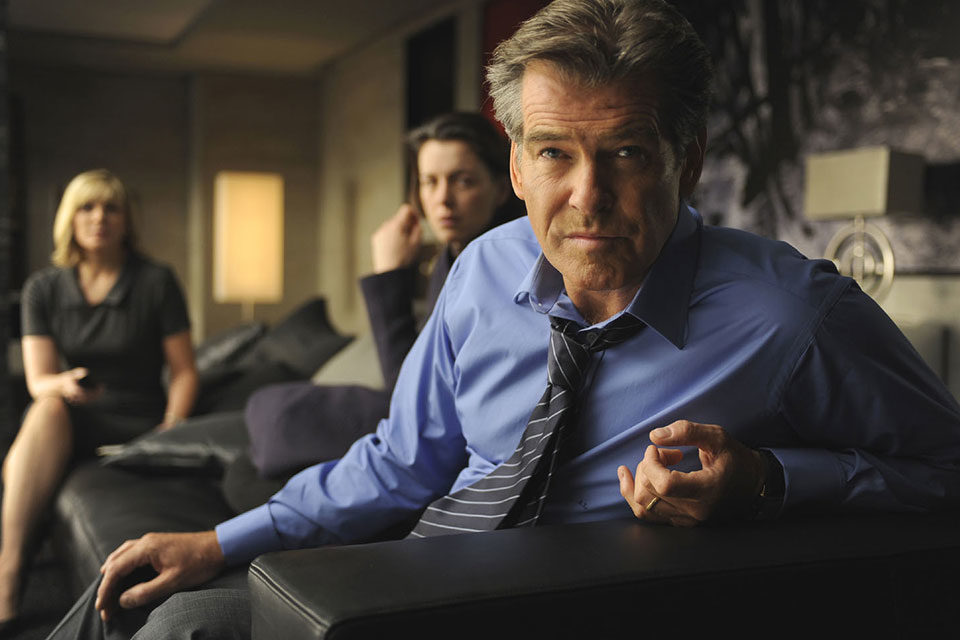
The Ghost Writer
Obviously, Polanski could not shoot on the real Martha’s Vineyard, and so Germany’s North Sea Coast had to double for the off-limits American location, while Berlin sound stages with their mirrored wizardry had to simulate American interiors. It all goes by so fast we don’t have time to notice.
In the total context of Polanski’s hard life and grim ordeals, and admittedly errant behavior, The Ghost Writer constitutes a miracle of artistic and psychological resilience.



